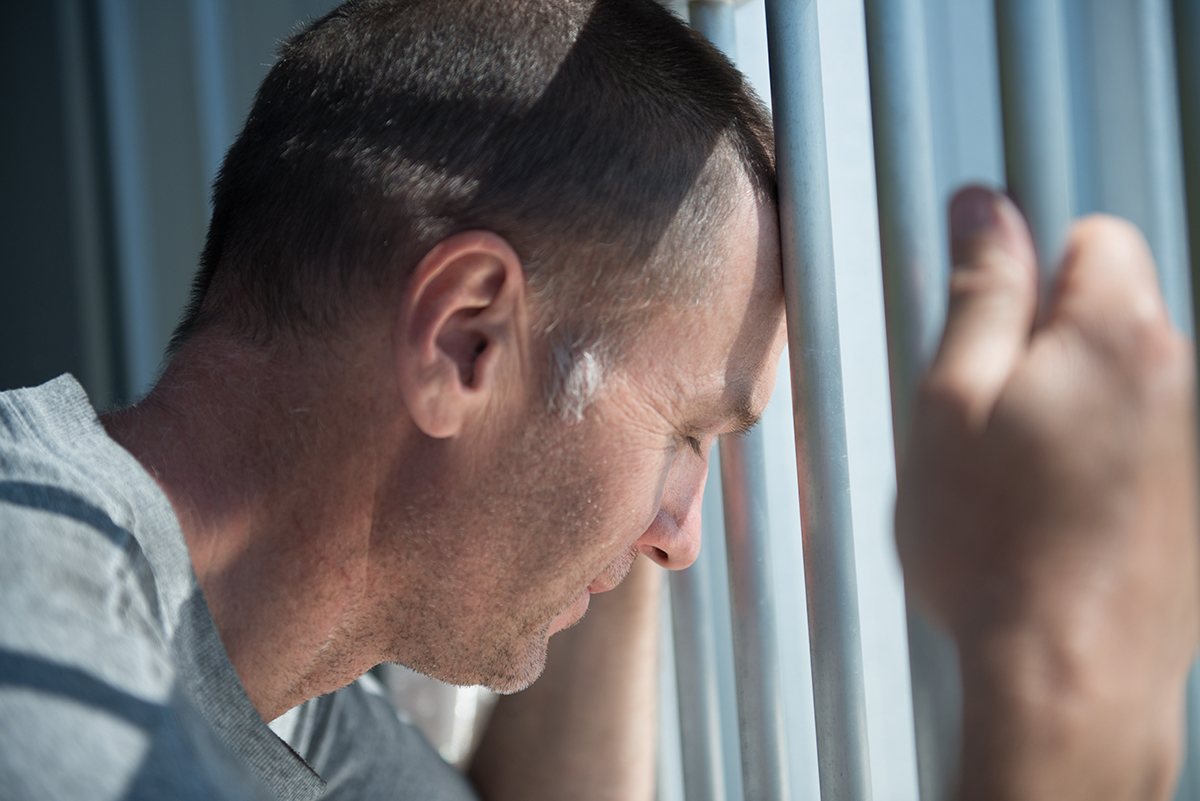Overincarceration is (also) a Problem

Mississippi has a crime problem.
Conservatives in the state are concerned about it, and rightly so. Last week 7 people were shot in an Ocean Springs restaurant, and 6 others were shot in Bay St. Louis on April 30th. Three people were killed in those incidents. Just yesterday a man was shot and killed in Jackson. Mississippi’s homicide mortality rate leads the nation, and FBI data shows a 66% increase in Mississippi’s homicide rate from 2017 to 2020. The conversation about criminal justice in Mississippi should begin and end with public safety, and it is clear that current policies are not adequately addressing the problem.
As conservatives wrangle with potential solutions to improve public safety, it is important to admit that Mississippi also has an overincarceration problem. This is yet another indicator of a broken justice system; a system that has failed to make Mississippi safer, stretched the state budget, and adversely impacted Mississippi families and communities.
The answer to Mississippi’s public safety woes is not more incarceration.
Over the past 30 years, Mississippi has over-relied on incarceration to improve public safety. I’ll use the term “overincarceration” to describe the policies and practices that have firmly established Mississippi as the world leader in incarceration rate while failing to improve public safety. The state’s prison population has more than doubled since 1990, and now Mississippi locks up more people per capita than oppressive government regimes such as Russia and China by significant margins.
If incarceration was the answer to improving public safety, Mississippi should be the safest place in the world to live.
Conservative policy solutions to address public safety must look at the justice system holistically. We can acknowledge that both violent crime and overincarceration are problems that need to be addressed. In fact, we must address both if we’re to improve public safety in a cost-effective way that minimizes harm to Mississippians.
The World Population Review points out, “a high incarceration rate does not actually increase public safety”, and it is clear the “tough-on-crime” policies intended to incarcerate us to safety simply have not worked. In 2016, Mississippi ranked third in the nation in imprisonment rate. We have since climbed to first in the world, and it’s not really close.
During that time, Mississippi has not become safer. The state’s homicide and violent crime rates increased by more than 50% and 8% between 2010 and 2020, respectively. Despite the distinguishment of being the world leader in inmates per capita, the state has seemingly become less safe.
It is also incredibly expensive to maintain such a large prison population. Nationally, the prison system costs states over $50 billion per year according to Right on Crime. The Mississippi Department of Corrections (MDOC) budget is one of the largest in the state, now exceeding $400 million, up from $337 million in 2017. Perhaps unsurprisingly, this increase corresponds with a 2,192-person increase in the number of incarcerated individuals in 2022 (much of which is due to a sudden and drastic decrease in parole approvals by the state Parole Board; more on that in a moment).
Beyond the financial costs of overincarceration, there is also a human cost involved. Evidence suggests overincarceration negatively impacts families and children, particularly in African American communities. When large numbers of people are locked up, families are torn apart. Over half of Americans behind bars are parents of children under age 18, and approximately 2.7 million children have at least one parent in prison. Children of incarcerated parents are more likely to struggle in school and experience poverty and other negative outcomes. Additionally, when individuals are released from prison, they often face significant barriers to employment and housing, which can make it difficult for them to successfully re-enter society.
Empower Mississippi has proposed solutions to both combat crime and reduce incarceration rates, which will improve public safety and ease the financial burden on taxpayers. Instead of locking more people up for longer periods of time, we recommend:
- Properly funding law enforcement and ensuring that the money is used to attract, pay well, and properly train officers. This will allow for more community-based policing approaches that have been shown to build trust and deter crime.
- Prioritizing limited resources on violent crime reduction. While violent criminals make up around 59% of Mississippi’s custody population, the other 41% of those are drug and non-violent offenders. In fact, from 2021 to 2022, the number of violent offenders as a percentage of those in custody actually declined from 66% to 59%. while the percentage of drug and nonviolent offenders increased from 34% to 41%. Additionally, 73% of prison admissions in 2021 were for drug and other non-violent crimes. This suggests that limited resources are being ineffectually prioritized to address drug and non-violent offenses rather than violent offenses. Certainly, drug and non-violent offenses should not be ignored; we believe criminals should be held accountable for their actions. However, preventing and solving violent crimes should be given the highest priority.
- Addressing mental health and addiction issues at the community level. A recent report by the Corrections and Criminal Justice Oversight Task Force points to national evidence that “suggests as many as 65% of people in prison have a diagnosable substance use disorder and another 20% were using drugs when they committed the offense that led to incarceration”. While it’s been pointed out that 18% of individuals incarcerated in MS are there for drug offenses, that number has actually climbed to 22% according to the aforementioned report. And, according to DPS data, most of these aren’t people selling drugs. In fact, almost 91% of drug violations in 2022 were for possessing/concealing or using/consuming, while less than 6% were for distributing/selling. Given these statistics perhaps we should talk more about providing substance use disorder and mental health services to both prevent crime and reduce recidivism than expanding incarceration and lengthening sentences.
- Enhancing and expanding programs that prepare those in prison to transition successfully back into the community. It is estimated that more than 95% of the prison population will ultimately re-enter society. Work-release programs have been shown to effectively combat recidivism and improve public safety. We should continue and expand work-release opportunities for individuals who can safely re-enter society. MDOC currently has a pilot work-release program, and the Corrections and Criminal Justice Oversight Task Force recently recommended removing location and participation limits on that program.
In addition to these recommendations, addressing the public safety and overincarceration problems must involve effective parole policies. While Mississippi’s incarceration rate has climbed nearly 4% since December 2019, our parole grant rate has plummeted. After reaching an 83% mark in October 2019, the parole grant rate was 37.6% for calendar year 2022 according to a recent report. For additional context, the average parole grant rates for 2020 and 2021 (through August) were 70.1% and 68.9% respectively. This marked reduction in the parole grant rate has undoubtedly contributed to Mississippi’s current overincarceration problem, and we should look at ways to safely transition more parole-eligible individuals back into society. It is worth noting that early indications suggest this number may have risen quite significantly through the first quarter of 2023. If so, this is a trend we hope to see continue.
Conservatives are committed to addressing the violent crime problem in Mississippi, but we should also be committed to tackling overincarceration. The two are not mutually exclusive, and both issues harm Mississippians. By enacting meaningful criminal justice reform, Mississippi can create a more just system that promotes public safety, supports families and communities, and reduces the cost to taxpayers. We urge Mississippi lawmakers to take action to address overincarceration and build a criminal justice system that is effective and efficient.
